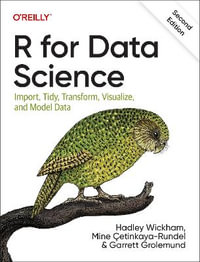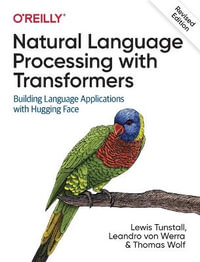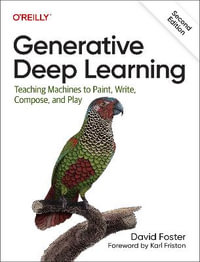
Metaheuristics for Scheduling in Industrial and Manufacturing Applications
By: Fatos Xhafa (Editor), Ajith Abraham (Editor)
Hardcover | 21 June 2008
At a Glance
372 Pages
23.39 x 15.6 x 2.24
Hardcover
$264.27
or 4 interest-free payments of $66.07 with
orAims to ship in 7 to 10 business days
Industry Reviews
From the reviews:
"This balanced collection of 13 chapters presents quality research, with each chapter describing an industrial or manufacturing case related to scheduling. ... The use of heuristics is very appropriate for most scheduling problems ... . The problems, methods, and approaches presented in the book are very diverse, offering a good starting point for solving most practical scheduling problems. ... An advantage of the book--the diversity of the problems and solutions presented ... ." (Waldemar Koczkodaj, ACM Computing Reviews, October, 2009)
| Exact, Heuristic and Meta-heuristic Algorithms for Solving Shop Scheduling Problems | p. 1 |
| Introduction | p. 1 |
| Production Scheduling Problems and their Classification | p. 3 |
| Single Machine Scheduling Problem | p. 3 |
| Parallel Machine Scheduling Problem | p. 4 |
| Major Shop Scheduling Problems | p. 5 |
| Flow Shop Scheduling Problem | p. 5 |
| Job Shop Scheduling Problem | p. 6 |
| Open Shop Scheduling Problem | p. 7 |
| Mixed Shop and Group Shop Scheduling Problems | p. 7 |
| Computational Complexity of Shop Scheduling Problems | p. 8 |
| Complexity of the FSSP | p. 8 |
| Complexity of the JSSP | p. 9 |
| Complexity of the OSSP | p. 9 |
| Optimization of Production Scheduling Problems | p. 10 |
| Solution Methodologies for Shop Scheduling Problems | p. 11 |
| Exact Algorithms | p. 11 |
| Heuristic Algorithms | p. 12 |
| Constructive | p. 12 |
| Local Search | p. 12 |
| Meta-heuristic Algorithms | p. 13 |
| Definition | p. 14 |
| Classification of Meta-heuristic Methods | p. 15 |
| Meta-heuristic Algorithms used for Shop Scheduling Problems | p. 15 |
| Hybrid Methods | p. 16 |
| Adaptive Memory Programming - The Unified View | p. 17 |
| The Flow Shop Scheduling Problem | p. 17 |
| Heuristics for the FSSP | p. 17 |
| Meta-heuristics for the FSSP | p. 19 |
| The Job Shop Scheduling Problem | p. 24 |
| Heuristics for the JSSP | p. 25 |
| Meta-heuristics for the JSSP | p. 26 |
| The Open Shop Scheduling Problem | p. 29 |
| Heuristics for the OSSP | p. 30 |
| Meta-heuristics for the OSSP | p. 30 |
| References | p. 31 |
| Scatter Search Algorithms for Identical Parallel Machine Scheduling Problems | p. 41 |
| Introduction | p. 41 |
| The problems | p. 42 |
| Identical Parallel Machine Scheduling Problem | p. 42 |
| Cardinality Constrained Parallel Machine Scheduling Problem | p. 43 |
| ki-Partitioning Problem | p. 44 |
| Scatter Search | p. 44 |
| Scatter Search for P‖Cmax | p. 46 |
| Scatter Search for P|# ≤ k|Cmax | p. 48 |
| Scatter Search for ki-PP | p. 49 |
| Computational Results | p. 49 |
| Scatter Search vs simple heuristics and exact algorithms | p. 49 |
| Comparison of meta-heuristic algorithms for P‖Cmax | p. 52 |
| Comparison among Scatter Search algorithms | p. 54 |
| Parameters Tuning | p. 55 |
| Conclusions | p. 57 |
| References | p. 58 |
| On the Effectiveness of Particle Swarm Optimization and Variable Neighborhood Descent for the Continuous Flow-Shop Scheduling Problem | p. 61 |
| Introduction | p. 61 |
| The Continuous Flow-Shop Scheduling Problem | p. 62 |
| How Iron Ore Becomes a Steel Plate | p. 62 |
| Formal Description | p. 63 |
| Literature Review | p. 64 |
| Particle Swarm Optimization | p. 64 |
| Standard Particle Swarm Optimization | p. 64 |
| Discrete Particle Swarm Optimization | p. 66 |
| Crossover Operators | p. 69 |
| Initial Swarm Population | p. 70 |
| Local Search | p. 71 |
| Computational Results | p. 72 |
| Conclusions | p. 79 |
| References | p. 79 |
| A Dynamical Ant Colony Optimization with Heuristics for Scheduling Jobs on a Single Machine with a Common Due Date | p. 91 |
| Introduction | p. 91 |
| Problem Formulation | p. 93 |
| Overview of Ant Colony Optimization | p. 94 |
| The Proposed Algorithm | p. 95 |
| Simulation Results | p. 97 |
| Conclusions | p. 100 |
| References | p. 101 |
| Deterministic Search Algorithm for Sequencing and Scheduling | p. 105 |
| Introduction | p. 105 |
| Literature Review | p. 107 |
| Formulating The Reverse Production Scheduling Problem | p. 108 |
| Modeling The Problem As A Multiprocessor Scheduling Problem And Proof As Unary NP-Complete | p. 110 |
| H-K Heuristic | p. 112 |
| Heuristic Search Background | p. 112 |
| Heuristic Motivation and Introduction | p. 112 |
| The H-K Process and DLBP Application | p. 114 |
| Electronic Product Instance | p. 118 |
| Numerical Analysis | p. 119 |
| Future Research | p. 121 |
| Conclusions | p. 122 |
| References | p. 122 |
| Sequential and Parallel Variable Neighborhood Search Algorithms for Job Shop Scheduling | p. 125 |
| Introduction | p. 125 |
| Variable Neighborhood Search | p. 127 |
| Parallelization of VNS | p. 128 |
| VNS Algorithms for Job Shop Scheduling | p. 133 |
| Job shop scheduling problems | p. 133 |
| Problem representation | p. 133 |
| Neighborhood Structure | p. 134 |
| VNS algorithms for JSS | p. 134 |
| Experimental Study | p. 135 |
| Experimentation with VNS algorithms | p. 136 |
| Parallel VNS algorithms | p. 137 |
| Related works | p. 141 |
| Conclusions | p. 142 |
| References | p. 143 |
| Solving Scheduling Problems by Evolutionary Algorithms for Graph Coloring Problem | p. 145 |
| Introduction | p. 145 |
| Graph Coloring Problem (GCP): definition and notations | p. 146 |
| Applications of Graph Coloring Problem | p. 147 |
| University timetabling: Examination Timetabling and Course Timetabling | p. 147 |
| Job-shop Scheduling Problem | p. 148 |
| Multiprocessor Scheduling Tasks Problem | p. 148 |
| GRACOM: Evolutionary Algorithm applied to Graph Coloring Problem | p. 149 |
| Coding of solution and a partial fitness function (pff) | p. 150 |
| A measure of population diversity | p. 152 |
| Genetic operators | p. 153 |
| Iteration Build Solution (IBIS) | p. 153 |
| Best Color Crossover (BCX) | p. 156 |
| Experiments and results | p. 158 |
| Genetic operators | p. 158 |
| Population size | p. 159 |
| Individual selection method | p. 161 |
| Tests of GRACOM efficiency | p. 161 |
| Scheduling experiments | p. 163 |
| Conclusions and future work | p. 165 |
| References | p. 165 |
| Heuristics and meta-heuristics for lot sizing and scheduling in the soft drinks industry: a comparison study | p. 169 |
| Introduction | p. 169 |
| Soft Drinks Plant | p. 170 |
| Literature Review | p. 173 |
| Evolutionary Approaches | p. 178 |
| The MA structure | p. 178 |
| The multi-population structure | p. 181 |
| Individual representation | p. 182 |
| Decoding and evaluation | p. 185 |
| Crossover and mutation | p. 187 |
| Local search algorithm | p. 189 |
| The Decomposition and Relaxation Approach | p. 191 |
| Model development | p. 191 |
| Relax and fix strategies | p. 196 |
| The relaxation approach | p. 198 |
| Computational Tests | p. 199 |
| Generation of instances | p. 200 |
| Computational results | p. 202 |
| Final Remarks and Conclusions | p. 206 |
| References | p. 207 |
| Hybrid Heuristic Approaches for Scheduling in Reconfigurable Manufacturing Systems | p. 211 |
| Introduction | p. 211 |
| Scope of the Research | p. 213 |
| Formation of Product Families for RMS | p. 213 |
| Identification of Product Attributes | p. 213 |
| Review and Selection of Grouping Methods | p. 214 |
| Development of the Methodology | p. 215 |
| Formation of Matrices | p. 215 |
| Clustering Methodology for RMS | p. 223 |
| Application of the ALC Algorithm | p. 224 |
| Selection and Scheduling of Product Families for RMS | p. 226 |
| Selection of Parameters | p. 227 |
| Methodology to Estimate Costs | p. 227 |
| Identification of Parameters | p. 228 |
| Cost Sensitivity | p. 231 |
| Mathematical Model | p. 234 |
| Production Planning with Heuristics | p. 237 |
| Heuristics to Solve the RMS Problem | p. 239 |
| Variant of the Nearest Neighbor Heuristic | p. 239 |
| Ant Colony Optimization | p. 240 |
| Hybrid Approaches to Solve the RMS Problem | p. 243 |
| Hybrid Approach of Nearest Neighbor Variant and Tabu Search | p. 244 |
| Hybrid Approach of ACS with Local Search | p. 247 |
| Conclusions | p. 250 |
| References | p. 251 |
| A Genetic Algorithm for Railway Scheduling Problems | p. 255 |
| Introduction | p. 255 |
| The Train Timetabling Problem (TTP) | p. 256 |
| Notation | p. 257 |
| Feasibility of a Solution - Set of Constraints | p. 258 |
| Optimality of a Solution - Objective function | p. 264 |
| Solving Process: A Genetic Algorithm Approach | p. 264 |
| Basic Scheme of the GA | p. 265 |
| Definition of Individuals: Solution Encoding | p. 266 |
| Fitness Computation | p. 267 |
| Initial Population | p. 268 |
| Crossover | p. 269 |
| Mutation | p. 270 |
| Selection | p. 271 |
| Decodification Process | p. 271 |
| Solving Real Cases with GA | p. 272 |
| Results | p. 273 |
| Conclusions | p. 275 |
| References | p. 275 |
| Modelling Process and Supply Chain Scheduling Using Hybrid Meta-heuristics | p. 277 |
| Introduction and Background | p. 277 |
| Related Works on Meta-heuristics | p. 279 |
| Motivation and Importance Behind the Model | p. 281 |
| Concept of Hybrid Meta Heuristics for the Proposed Model | p. 281 |
| Bee Colony Optimization | p. 283 |
| Mathematical Model of Foraging for Honey Bees | p. 283 |
| Multi-Objective Optimization and Standard Bee Colony Optimization Algorithm | p. 285 |
| Waggle Dance -Computational Interpretations | p. 286 |
| Forage and Combining Rough Set | p. 286 |
| Process Scheduling and Optimization under Uncertainty | p. 287 |
| Rough Set | p. 288 |
| Case Study of Milk Food Product Processing and Production | p. 289 |
| The Proposed PBC Optimization Algorithm | p. 291 |
| Implementation of PBCO as Multi Objective Optimization | p. 294 |
| Experimental Evaluation | p. 295 |
| Process Betterment through PBCO - A Comparative Study | p. 295 |
| Conclusions and Future Work | p. 298 |
| References | p. 298 |
| Combining Simulation and Tabu Search for Oil-derivatives Pipeline Scheduling | p. 301 |
| Introduction | p. 301 |
| Literature review | p. 303 |
| Problem Statement and Modelling Approach | p. 304 |
| Pipeline system characteristics | p. 304 |
| Problem Definition and Schedule Representation | p. 304 |
| Objective | p. 306 |
| Modelling Approach | p. 306 |
| The Pipeline Simulator | p. 307 |
| Tabu Search | p. 309 |
| General Outline | p. 310 |
| Types of Movements | p. 311 |
| Stage selection | p. 315 |
| Tabu Lists and Aspiration Criterion | p. 316 |
| Diversification list | p. 317 |
| Terminating criterion | p. 317 |
| Worsening Limits | p. 318 |
| Case Study. Computational results | p. 318 |
| Conclusions and Future Work | p. 323 |
| References | p. 324 |
| Particle Swarm Scheduling for Work-Flow Applications in Distributed Computing Environments | p. 327 |
| Introduction | p. 327 |
| Problem formulation | p. 328 |
| Particle Swarm Heuristics for FDSP | p. 332 |
| Canonical Model | p. 332 |
| Variable Neighborhood Particle Swarm Optimization Algorithm (VNPSO) | p. 335 |
| Experiment Results and Algorithm Performance Demonstration | p. 338 |
| Conclusions | p. 339 |
| Acknowledgements | p. 341 |
| References | p. 341 |
| Index | p. 343 |
| Table of Contents provided by Publisher. All Rights Reserved. |
ISBN: 9783540789840
ISBN-10: 3540789847
Series: Studies in Computational Intelligence
Published: 21st June 2008
Format: Hardcover
Language: English
Number of Pages: 372
Audience: College, Tertiary and University
Publisher: Springer Nature B.V.
Country of Publication: DE
Dimensions (cm): 23.39 x 15.6 x 2.24
Weight (kg): 0.69
Shipping
| Standard Shipping | Express Shipping | |
|---|---|---|
| Metro postcodes: | $9.99 | $14.95 |
| Regional postcodes: | $9.99 | $14.95 |
| Rural postcodes: | $9.99 | $14.95 |
How to return your order
At Booktopia, we offer hassle-free returns in accordance with our returns policy. If you wish to return an item, please get in touch with Booktopia Customer Care.
Additional postage charges may be applicable.
Defective items
If there is a problem with any of the items received for your order then the Booktopia Customer Care team is ready to assist you.
For more info please visit our Help Centre.
You Can Find This Book In
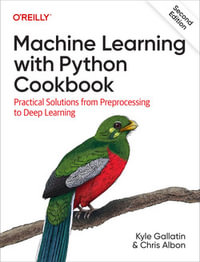
Machine Learning with Python Cookbook
2nd Edition - Practical Solutions from Preprocessing to Deep Learning
Paperback
RRP $152.00
$66.25
OFF
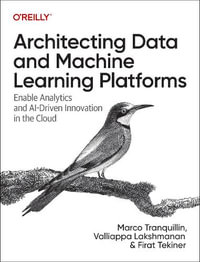
Architecting Data and Machine Learning Platforms
Enable Analytics and Ai-Driven Innovation in the Cloud
Paperback
RRP $125.50
$55.25
OFF
This product is categorised by
- Non-FictionMathematicsCombinatorics & Graph Theory
- Non-FictionBusiness & ManagementManagement & Management TechniquesManagement of Specific AreasProduction of Quality Control Management
- Non-FictionBusiness & ManagementOperational Research
- Non-FictionMathematicsApplied Mathematics
- Non-FictionComputing & I.T.Computer ScienceArtificial Intelligence
- Non-FictionEngineering & TechnologyTechnology in GeneralEngineering in General
- Non-FictionComputing & I.T.Computer Programming & Software DevelopmentSoftware Engineering







